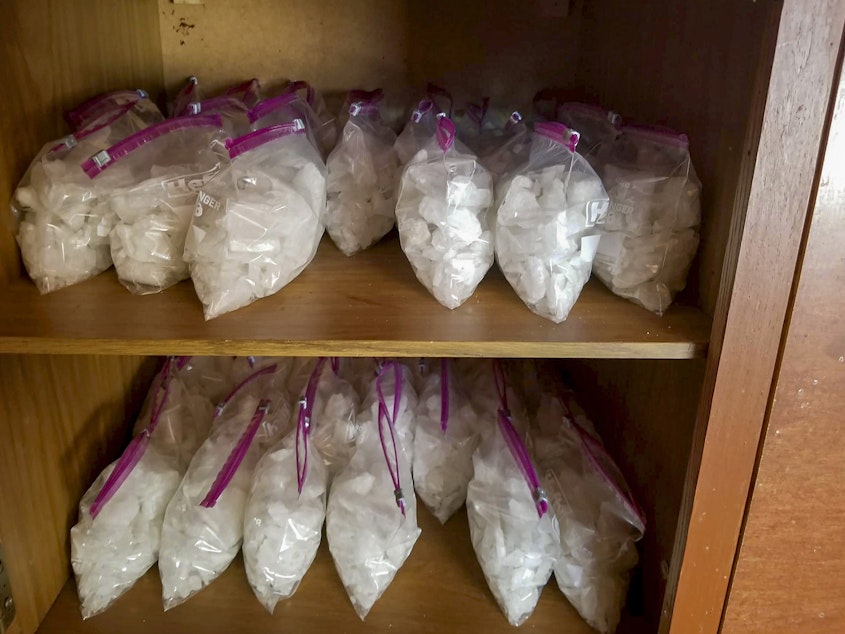Seattle's plan to reward people for not using drugs

This week Seattle Mayor Bruce Harrell issued an executive order on drug addiction. Part of the plan is to champion a pilot program that pays people to stop using drugs.
The program involves a treatment method called “contingency management.” The way it works is simple: People struggling with addiction are offered rewards such as gift cards, prizes, or sometimes cash. Then, for every clean urine sample, they’re given a reward.
Some, including local conservatives, have ridiculed the concept as a plan to “bribe” people addicted to drug. But some studies suggest contingency management works and is one of the only things that works for some drug users.
It can be a lifesaver for people hooked on stimulants like methamphetamine or, as is common, a combination of drugs that includes meth use. That’s because there is no proven medically-assisted treatment for meth as there is for opioid use disorder, where highly-effective options include Buprenorphine, methadone, and naltrexone.
Here in Seattle, the program will operate under Plymouth Housing, a nonprofit residence and support center for people experiencing long-term, or “chronic,” homelessness.
“This may be kind of the first step in somebody's recovery process, and it may open the door to other types of treatment options for that person,” said Huynh Chhor, who leads the effort at Plymouth Housing.
The pilot program is funded through an $800,000 grant from the Washington State Health Care Authority. It’s just one of several reward pilots now in the works statewide. Other sites include Northwest Integrated Health, Public Hospital District #1 of Klickitat County, Family Health, and Grays Harbor County Public Hospital District #1.
Sponsored
But Chhor said Seattle’s Plymouth program will be unique.
“We are the only people providing contingency management onsite or where people live. We're not a clinic. We're not a health care facility,” she said.
The state health authority hopes that each pilot program, including the one in Seattle, will enroll up to 20 participants per year to start. Chhor said at Plymouth around 60 people they serve who are struggling with addiction could possibly qualify to participate in the program out of more than 1,000 residents.
Chhor credits Seattle elected officials and the city auditor’s office for helping their effort get off the ground.
Yesterday, Mayor Bruce Harrell spoke about the program's promise to help reduce overdose deaths.
Sponsored
"It is part of a philosophy to do the outreach and develop the relationships, so that people realize, if they don't change their ways they will die," he said.
City Councilmember Sara Nelson is among the officials in Seattle who has also been calling for a contingency management pilot program.
“It is a method of incentivizing sobriety, or not using, so that people can get out of the crisis that they're in, and then seek or be open to long-term treatment,” she said.
Nelson, who is in recovery herself, sees it as just one approach to the “addiction crisis” in Seattle.
“Addiction lies at the intersection of both our public safety and our homelessness crisis. This is ground zero for really making meaningful sustainable progress on a lot of fronts, including improving downtown,” Nelson said.




